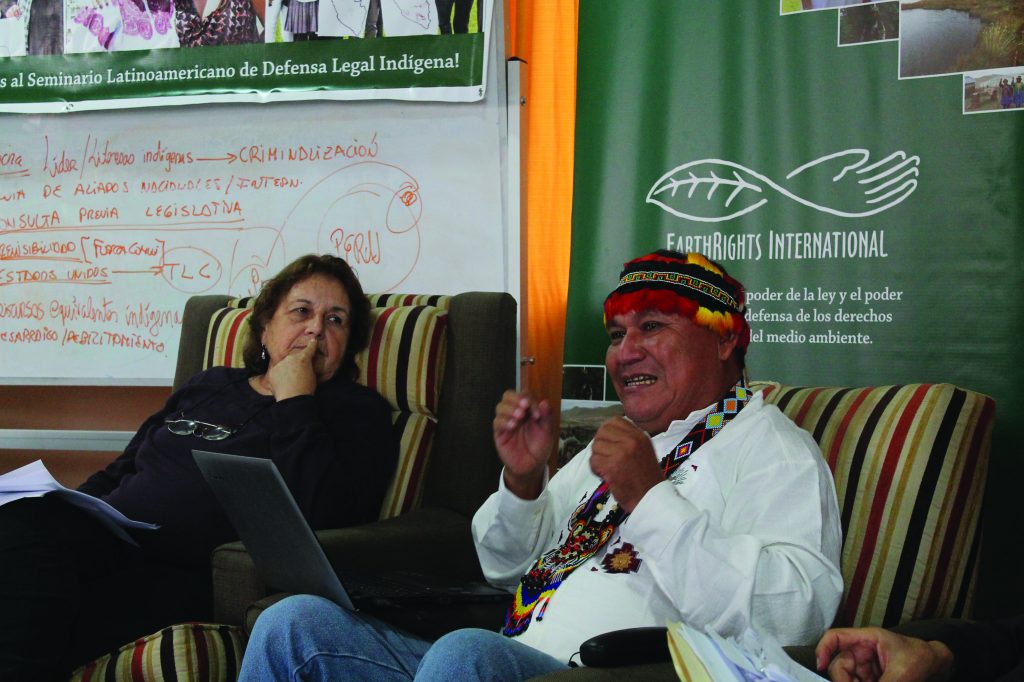In the Peruvian Amazon, Indigenous peoples are the last stronghold of resistance against the destructive advancement of extractive and agribusiness projects. Indigenous communities are the group most vulnerable to the effects of climate change. Left largely alone in this struggle to confront climate-damaging public policies and private initiatives, they face increasing threats, attacks, and repression for their work as guardians of the territory
This case study follows the story of two Indigenous communities taking collective action against external threats, the Mashco Piro peoples, a group in isolation, and the Wampis Nation, a community in the North of the Peruvian Amazon.
Meet The Wampis Nation
The Wampis Nation is an Indigenous group made up of more than 85 native communities. The Wampis territory covers 1,327,000 hectares in the North of the Amazon of Peru, between the departments of Loreto and Amazonas. Indigenous peoples in the Amazon are forced to coexist with multiple threats to their rights and territories. For years, the Wampis Nation has been suffering the impacts of several extractive industries, particularly those related to hydrocarbon activities.
Attacks Against the Community in the Peruvian Amazon

Wrays Pérez is the former Pamuk of the GTANW and recognized Indigenous defender of the Peruvian Amazon. In 2020, Wrays, as a representative of the Wampis Nation, denounced illegal logging activities by Ecuadorian loggers who would enter the Wampis territory through the Santiago River (Kanús), returning with boats full of wood from the Wampis and Awajún communities.
The inaction of the Peruvian authorities is fueling illegal logging. During the COVID-19 pandemic, the Wampis Nation denounced the increase of illegal logging in the area as a driver of deforestation. Halting deforestation in the Amazon region must be a key priority for Peru and the international community to effectively respond to the climate crisis. The Amazon rainforest is a key element of the global climate system, and its protection should be a global concern. Defenders like Wrays should not have to put themselves and their families in danger to demand its protection.
“To stop the climate crisis, it is necessary to save the forests of the Amazon in Indigenous territories. To save Amazonian forests, Indigenous territories must be safeguarded: titling of territories recognizing Indigenous rights, strengthening governance, strengthening the sustainable economy, community surveillance, identifying and valuing traditional and current knowledge.”
Julio Ricardo Cusurichi Palacios, Goldman Environmental Award recipient 2007 and President of FENAMAD
Governments and policymakers must recognize and protect the role of Indigenous peoples when adopting policies to respond to global environmental challenges, such as climate change, and particularly the role of Amazonian Indigenous communities. Indigenous organizations should receive support to strengthen their capacities and continue their work as defenders of the Amazon.

For thousands of years, Indigenous peoples in
the Amazon have built a special relationship
with the land so as to conserve and take
advantage of its resources in a sustainable
way.
That balance is now in jeopardy, with
a lack of recognition of Indigenous peoples’
rights driving multiple threats from extractive
industries.
Image: courtesy of FENEMAD
Using SLAPP Suits to Silence Defenders
FENAMAD is facing a retaliatory suit (also called a strategic lawsuit against public participation, or SLAPP), a lawsuit that a company files strategically against a group or activist opposing certain actions by the company. In the case of FENAMAD, the SLAPP suit came after its denunciation against a logging company entering the territory of the Mashco Piro peoples, an Indigenous community in voluntary isolation.
Madera Canales Tahuamanu, the logging company, was leased a concession overlapping with Mashco Piro territory. When FENAMAD released a statement opposing the logging company’s actions, that company sued FENAMAD. Initially, the Peruvian judiciary ruled against FENAMAD, though that case is currently being appealed. The story of FENAMAD illustrates how, when governments failed to protect the Amazon, the communities on the front lines of the climate crisis stepped up and are now facing repression and judicial persecution.






